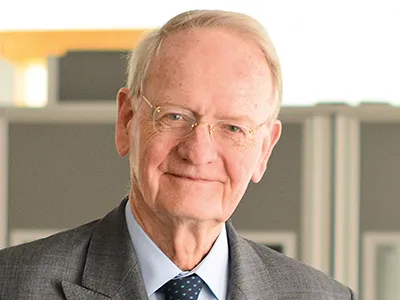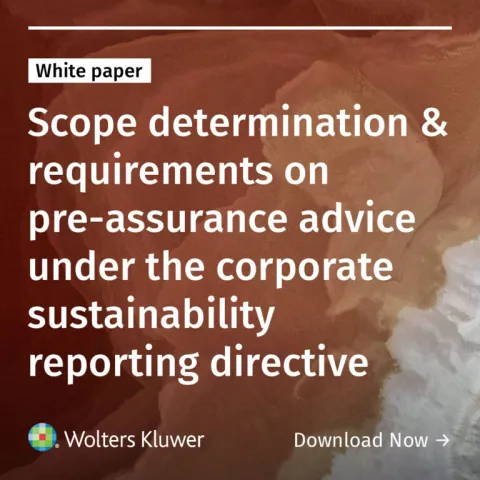'Period of provisional application Unified Patent Court Agreement can start this year'
June 22, 2020
The provisional application period of the Unified Patent Court Agreement can start before the end of this year. That is the expectation of Winfried Tilmann, consultant at Hogan Lovells and one of the founders of the court. In an interview with Kluwer IP Law, Tilmann comments on the German government’s initiative to re-ratify the UPCA and the possibility of a last minute turnaround of the UK – which has said it no longer wants to be part of the UP system. He does not believe the Federal Constitutional Court (FCC) in Germany may think the UPCA violates the German constitution.
Was the long awaited decision of the FCC to declare void the German ratification of the UPCA a great disappointment for you?
“It came as a surprise. It was for the first time that the CC (1) granted a citizen the right to appeal against an act of Parliament invoking the disregard of alleged voting rules and (2) required a 2/3 majority for a transfer of competences in the context of international cooperation based on international law.”
The German Minister of Justice and Consumer Protection, Christine Lambrecht, reacted surprisingly quickly to the decision of the FCC last March. Less than a week later she declared: “I will continue to work to ensure that we can provide the European innovative industry with a Unitary Patent and a Unified Patent Court.” Observers said it shows how strong the lobby is behind the creation of the Unitary Patent system. Some pointed at the similarities between an article you published in GRUR 2020, 441 and the explanatory note of the Ministry of Justice accompanying the new draft ratification bill for the UPCA. (see comments below this earlier blogpost) Are you the architect behind the lobby and the memorandum?

What is your opinion about the draft bill and the German intention to re-ratify the UPCA as soon as possible?
“I agree with both.”
What about the position of the UK? It completed the ratification process despite the Brexit referendum of 2016, but earlier this year the UK government announced it will not participate in the Unitary Patent project. However, there has been no official statement to that effect. Should the German government contact the UK government and/or the UPC Preparatory Committee before completing the ratification procedure – which will launch the entry into force of the UP system – in order to prevent the UK becomes a member of the UP system against its will?
“The UK, until now, has not effectively withdrawn its UPCA membership based on signature and ratification. It has signalled its intention to do so only informally. The other CMS must stay prepared for both, a withdrawal and a last minute turnaround to stay which would be most welcome. It is for the UK to act. Germany's ratification bill must proceed independently in order to allow the entry into force of the Protocol on provisional application so that the set-up preparations can continue. When these are completed, Germany may deposit its instrument of ratification with the EU Council.”
Do you agree that, regarding the UK withdrawal from the UP project, the Vienna Convention on the Law of Treaties (VCLT) will apply, as there are no withdrawal provisions in the UPCA? And that, in view of article 56(2) VCLT, the UK will stay a member of the UP system at least 12 months from giving ‘notice of its intention to (…) withdraw from’ the UPCA?
“It follows from the definition, in Art 2(g) VCLT, of the word ‘party’ used in Art 52 that Art 52 is applicable only after the Treaty has come into force. It may be derived from Art. 25(2) VCLT governing provisional application that before that date cancellation by a State is possible by simple notification.”
The explanatory memorandum of the German draft bill says the London branch of the UPC division could be relocated provisionally to Paris and Munich, pending a decision on its final destination. Who is competent to decide about the final destination?
“Any change of Art. 7(2) UPCA and Annex II would be subject to ratification by all CMS. This would postpone the beginning of provisional application and entry into force for a considerable time. Better to live, for the time being, with the legal situation as created by a UK withdrawal: The remaining parts of the central division (not London) may be established and will be able to perform the London duties in the beginning. The distribution of these duties between the two instances remaining may be decided upon by a so-called 'subsequent agreement'. According to Article 31(3)(a) VCLT, in the interpretation of international treaties, account shall be taken of any subsequent agreement between the contracting parties on the interpretation of the treaty or the application of its provisions. The draft bill also rightly mentions the provision of Article 31(3)(b), according to which account must be taken, in the same way, of any subsequent practice in the application of the treaty which shows the agreement of the contracting parties on its interpretation. No ratification of such accord being necessary.”
The German draft ratification bill repairs a formal issue, the fact that there was no two-thirds majority when the Bundestag and Bundesrat ratified the UPCA. The FCC suggested however, there may be substantive deficits as well with the agreement, most notably the point that unconditional primacy of EU law, as stipulated in Article 20 of the UPC Agreement, may violate the German constitution. Shouldn’t the German government have taken this into account?
“There is no indication ('Anhaltspunkt', mn 166 CC-decision) whatsoever that the German legislator, by means of the ratifying bill, will be giving the UPC the power to apply EU law even if it is in breach of German constitutional law. Such a will cannot be assumed, if only because, according to the proposed draft bill, the explanatory memorandum of the ratifying law expressly contradicts such an assumption.”
A consultation has started on the new draft bill. Is it normal in Germany not to publish the names of the organizations and associations that are being consulted? What kind of feedback can be expected?
First question: yes. Second question: It is expected that the feedback will be overwhelmingly positive.
What is the next step after the consultation period?
After evaluating the comments the Justice Ministry will prepare the Bill (with or without changes) for an approval by the Cabinet. After approval the bill will be sent to the Bundestag and the Bundesrat (the chamber of Länder-representatives) for discussion and eventual decision. Both will have to decide by a two thirds majority. Finally, the President will sign the bill and the Protocol. The latter will trigger the provisional application of the UPCA-parts necessary for establishing the UPC. When preparations are completed, Germany will deposit its instrument of ratification with the EU Council.
When do you think the German ratification procedure can be completed?
“By the end of this year the bill is expected to have been passed so that the provisional application period may start.”
You’ve been a staunch supporter of the Unitary Patent project. Why is this system so important in your view? Is it really beneficial for SMEs, as has often been said in the past by its supporters, or is it mainly beneficial – in the words of a critic below this blogpost - for “the “Big” industry and lawyers who hope to fill their pockets when litigating before the UPC?”
“First question: I share the view of patent owners worldwide. The system completes the European patent system raising it to the same level as the systems of the US and China.
Second question: The SMEs belong to the beneficial owners of the new system. Accused of infringement they may be sued only before one court and may challenge the validity of the plaintiff's patent there. If their own patents are infringed, they may bring their case before the same one court, also in that respect avoiding costly multiple national actions. The same applies for not so small entities.”
You may also like














Concerned observer
"It may be derived from Art. 25(2) VCLT governing provisional application that before that date cancellation by a State is possible by simple notification" Well, you have got to hand it to Herr Tilmann. I mean, who else could have come up with the idea that a "simple notification" from a Contracting State could have the same effect as formal withdrawal of an instrument of ratification? I had been under the impression that, unless and until it withdraws its instrument of ratification, a State that has ratified an international treaty not only remains a Contracting State to that treaty but is also legally obliged (by Article 18(b) VCLT) to "refrain from acts which would defeat the object and purpose" of that treaty. I had also been under the impression that Article 25(2) VCLT only applies if and when a treaty is subject to provisional application ... which, of course, will NOT be the case for the UPC Agreement unless and until Germany ratifies the Protocol on Provisional Application (PPA). Of course, if the UK does withdraw its instrument of ratification of the UPC Agreement, then this means that the PPA cannot enter into force. This is because Article 3(1) of the PPA makes the UK's ratification of the UPC Agreement a requirement for entry into force of the PPA. It may also have terminal consequences for the whole Unitary Patent Package. On the other hand, if the UK does NOT withdraw its instrument of ratification of the UPC Agreement, then CJEU opinion 1/09 makes it clear that Agreement will contravene EU law (at least after the end of 2020). So, pressing ahead without any clarity regarding the UK's position means either that there will be no provisional application period (with consequences including making it impossible to recruit judges) or that the court will contravene EU law. And this is without even considering the possibility that Germany may now be precluded from ratifying the UPC Agreement, either by the AETR case law of the CJEU or by its own Basic Law (as per para 166 of the FCC's decision). So, bearing all of this in mind, why would any sane lawyer think that it is a good idea to press ahead regardless?
One of those...
and patentees worldwide are waiting for such completion of the European patent system to come for the same long period. As far as I can see, German inventors and industry are continuing their strong support for this modern system completing, at the court level, the central grant system of the EPC I see you're working more for non-EU countries. And a few select, multinational German companies, whose opinions are therefore the ones you can see. I wonder what the BVerfG will say if called upon again, and pointing to the flaws otherwise indicated in their opinion, and why Government has not commented or reacted upon those.
Jan Verbist
No question asked about the constitutional complaints. No mention of the court decision on "this agreement is only open to EU member states". No mention neither of the more expensive costs of defense for SMEs: https://www.stjerna.de/files/Unipat-SMEs.pdf IPO: "The costs of the new system are likely to hit SMEs the hardest."
MaxDrei
I'm enjoying this thread, and laughing at the words picked out by commenter "One of those" in particular that extremely revealing choice of words "As far as I can see...." to open the sentence. People old enough to have reached positions where they decide the question UPCA Y/N? will well remember Simon & Garfunkel back in the 1970's singing "A man hears what he wants to hear and disregards the rest". No different, I would say, between hearing, seeing and selective memory. The cognitive dissonance of the human brain is a timeless wonder, not least in the corridors of power in Brussels. As an Englishman in Germany, I find it striking, how difficult people find it, to distinguish fact from the opinion of the leading expert. It seems to be a bit of a "chicken and egg" situation. Is it the predisposition to trust the expert that comes first? Or is it the self-confidence with which the experts deliver their opinion that predisposes people to accept them? And why the English scepticism (even ridicule) of self-important pontifications of experts? Perhaps it comes from our adversarial system of civil litigation, where expert evidence is a staple but where it is inevitable, at trial, under cross-examination, one or other of the opposing experts is going to be exposed as unconvincing. Knowing this already, even before they deliver their written report/opinion, experts giving witness evidence in civil litigation in England, are extremely cautious, in every word they write, for their very reputation, the basis of their exalted status, is at stake. I recall that old story about the English, busy losing the Boer War and the reporter on site for the London Times sending back to London one gloomy report after another. Exasperated, his Editor sent him a cablegram which read "Send news of victories". I wonder, does Mr Tilmann (consultant to Hogan Lovells, one of the world's most prominent international litigation law firms) sometimes feel a bit like that reporter? Readers, I heartily recommend the current issue of der Spiegel and its eyebrow-raising report on the activities of Philipp Amthor, in pursuance of his employment as Consultant to another large international law firm, White & Case, extremely well-embedded in government circles, notably in Brussels..
Attentive Observer
Did you expect anything else from a lobbyist like Mr Tilmann? The term lobbyist is appropriate when you compare what Mr Tilmann has said in his article in GRUR 2020, 441, section VI.2.b) about the London Section of the central Division with the statement of the Ministry of Justice, Part B of the explanatory memorandum. That the Minister of Justice has published a declaration shortly after the publication of the decision of the GFCC that the ratification will re-start during the present legislative period has certainly not been written by the Minister herself, but by her administration. The lobbyists in the BMJV have been active soon after the decision of the GFCC was not the one expected. It is manifest that Mr Tilmann has held the hand of the civil servants in the ministry. In both documents it is stated, without any legal justification whatsoever that, once UK has left the UPCA, the London Section of the Central Division goes to Paris and it only later that different location might have to be designated. Me Véron, another lobbyist for the UPC, even went as far to claim that this is a gift from Brexit which should not be trumpeted around. It is hard to believe that educated people can be politically naïve enough to come up with such a statement, given the difficult negotiations that preceded the splitting of the central division into three locations. The UK has announced that it will not participate in the UPC, as it does not accept the supremacy of the CJEU, but it has not made any attempt to officially withdraw from the UPCA. As the UPCA does not have an exit clause, only the Vienna Convention on the Law of Treaties (VCLT) could be of application. It is debatable whether it could be Art 25(2) VCLT as suggested by Mr Tilmann or Art 31(3) VCLT as suggested by the Ministry. In the case of Art 25(2) VCLT, the UPCA needs at least to be provisionally entered into force and the UK having send in a notification of withdrawal. By not participating and not sending a notice of withdrawal, the UK is in the comfortable position to blow up the UPCA. This would allow the UK to set up an improved litigation system in direct competition with the UPC. In the case of Art 31(3) VCLT, it requires a political declaration of the remaining member states. When seeing how eager Italy was to receive the Life Science Section of the Central Division either in Milan or Torino, it is doubtful that such a declaration will be given. On the other hand, as has been noted by Concerned Observer in a previous post, Art 56(2) VCLT provides that the UK will remain a member state to the UPCA for 12 months after its withdrawal. Why should Art 25(2) VCLT prevail? This is the private opinion of a private person, and even the document of the Ministry of Justice makes no reference to Art 2582) VCLT! One wonders why. The explanatory note mentions Art 31(3) VCLT. Whatever Mr Tilmann claims and the lawyers in the Ministry of Justice say, unless the status of the London section of the Central Division is clarified upfront, i.e. that Art 7(2) UPCA is amended, it appears foolish for Germany to ratify the UPC. It is surprising that in the draft bill of ratification and the explanatory memorandum , there is not one word about a further possible constitutional challenge of the ratification, cf. Point 166 of the decision of the GFCC. It is thus not correct for Mr Tilmann to claim that “the explanatory memorandum of the ratifying law expressly contradicts such an assumption.” In view of the decision of the GFCC about the purchase of bonds by the ECB, it is in any case quite daring to come to this conclusion, whether one agrees or not with the decision of the GFCC. Justice Huber has made his position clear in an interview to the Frankfurter Allgemeine Zeitung. Simply ignoring such a question or belittling it like Mr Tilman does, shows once more who is interested in the UPC coming whatever it takes. When Mr Tilmann speaks of the “patent owners worldwide” he is clearly saying who will be the beneficiaries of the UPC. 70% of European patent owners sit outside the EU. Offering them a single platform to attack European firms or European patent owners is something which will have dear consequences for Europe, but will allow Tilmann and consorts to fill their pockets. And this is the only interest they have in the whole UPC business. When taking into account that the average number of validations of patents in EU member states, the UPC is as needed as a hole in the head. Only some very limited industries validate in a lot of EU member states, and even less validate in all EU member states. But those are figures which are superbly ignored by Mr Tilmann and consorts. Why is it that countries like Poland and the Czech Republic refuse to ratify the UPCA? If the UPC is as wonderful as claimed by Mr Tilmann, they should be jumping at it. And yet, it is after careful evaluation of the risk for their industry, they decided not to go further with the UPC. When Mr Tilmann claims that “The SMEs belong to the beneficial owners of the new system” it is just laughable and distorting reality. European SME are simply frightened to be attacked by multinational corporations, as they cannot resist the financial pressure which goes with it. From the 10% of patents granted by the EPO to SMEs within the EU how many do validate in more than 3 states? Alone the fee for a nullity action is nearly double to the fee for infringement. It is thus very clear who should be the prime beneficiaries of the UPC. Certainly not SMEs. I invite Mr Tilmann to read the article of Mr. Dimitris Xenos, "The Impact of the European Patent System on SMEs and National States and the Advent of Unitary Patent", published in Prometheus, Vol. 36, No. 1 (März 2020), S. 51-68. The conclusions are very clear to any people genuinely looking at the number of applications from SMEs and granted to SMEs: the UPC is not for them. It is not the ridiculous document of the EPO showing 12(!) case of allegedly successful SMEs with European Patents which will alter the conclusions drawn by Mr Xenos. Techrights and zoobab: FINGERS OFF!!!